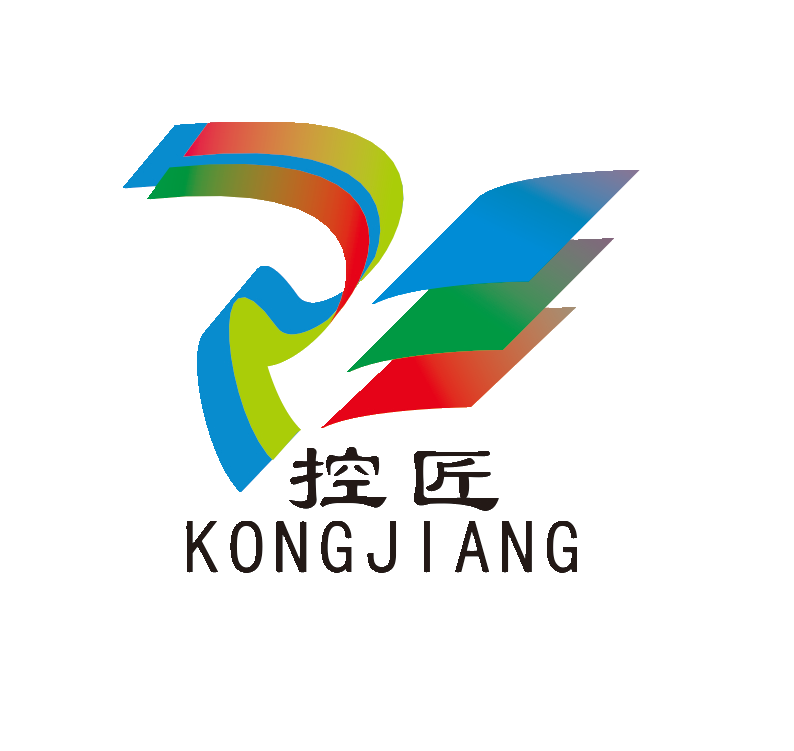

K-WANG


ABB releases a new round of AI strategy to drive industrial AI technology innovation and industrial landing
Embedding artificial intelligence into the entire business line, with over 100 AI projects currently underway
Joining hands with partners and investing in start-up technology companies to further expand AI innovation capabilities
AI powered automation and electrification solutions to support Chinese customers in unlocking the potential value of AI
The wave of artificial intelligence is evolving at an unprecedented speed, profoundly changing many industries. ABB's various businesses are accelerating their pace of AI innovation, upgrading their strategic layout, and increasing investment. Today, at the ABB Artificial Intelligence Strategy Conference held in Shanghai, Dr. An Shiming, President of ABB Robotics and Discrete Automation Division, introduced ABB's latest strategy and application achievements in the field of artificial intelligence, and shared ABB's implementation path and application deployment for analytical AI and generative AI. By combining artificial intelligence with professional knowledge, it helps customers unlock new scenarios, create new value, and form new quality productivity.

ABB has accumulated profound experience in the field of artificial intelligence. Since 2014. we have continued to create value for our customers through AI enabled automation and electrification solutions. The rapid development of generative AI has triggered a new round of industry transformation and leap forward. Machines have become smarter, more powerful, and easier to use, lowering the threshold for automation applications in enterprises of all sizes, while also meeting the needs of users for higher flexibility and intelligence in labor shortages and uncertain environments. ABB will work closely with customers, partners, and the education industry to promote innovative development of artificial intelligence and jointly build a better and prosperous future
AI innovation accelerates empowerment of all business lines
As a global technology leader, ABB is increasingly integrating artificial intelligence into its automation and electrification product portfolio, helping customers in fields such as power, industry, transportation, and infrastructure improve efficiency, quality, and innovation capabilities. ABB has focused on AI application categories such as insight generation, process optimization, skill development, and human-computer interaction, and has carried out more than 100 artificial intelligence projects, taking into account both analytical AI and generative AI.
ABB's four major businesses of electrical, motion control, process automation, robotics, and discrete automation have all applied artificial intelligence to serve customers in various industries. From macro level energy management to micro level robot motion path planning, artificial intelligence can effectively optimize operations and achieve energy efficiency doubling. Typical cases include:
ABB utilizes building system data, combined with behavioral patterns, for building energy management, significantly reducing emissions, lowering costs by over 20%, and extending equipment lifespan;
ABB uses artificial intelligence to assist in predicting potential faults in frequency converters, and conducts predictive maintenance by analyzing operational data, significantly improving equipment availability and reducing maintenance costs;
The ABB Ability Genix industrial analysis and AI suite can help businesses save up to 40% on operational and maintenance costs, increase production efficiency by 30%, and optimize energy and emissions by 25% through process optimization.
In the field of human-computer interaction, ABB uses natural language instructions to teach robots how to perform operations such as picking and placing, improving usability and facilitating quick debugging.
Robot+promotes the collaborative integration of AI and industry
The world today is facing major trends such as personalized consumption, accelerated digitization and artificial intelligence, labor shortages, and increasing uncertainty. ABB provides leading robotics and automation solutions to increase production capacity and quality, enhance flexibility and ease of use, and help businesses respond more flexibly and efficiently to the challenges and opportunities brought by these trends. The application of artificial intelligence enables more cost-effective robots and automation, benefiting more enterprises, especially small and medium-sized enterprises.
With the support of data and artificial intelligence, robot autonomy has been elevated to a new level, achieving adaptability in new environments. By integrating artificial intelligence into robot solutions, ABB not only brings greater autonomy to users, but also achieves stronger mobility, as well as more powerful image processing and analysis capabilities.
Quality inspection: ABB provides an artificial intelligence robot welding quality inspection system that can detect, discover, and identify defects as small as 22 microns at a speed 20 times faster than manual labor;
Predictive maintenance: Based on the failed physical model and AI evaluation criteria learning, ABB robot fault prediction accuracy can reach 99.9%, with 1 to 3 months of early warning and zero production interruption;
Autonomous drilling: ABB robots equipped with sensors and AI systems help Xunda drill holes and install anchor bolts in elevator shafts, greatly improving construction accuracy and operational safety;
Item picking: With the support of 3D vision guidance and AI deep neural networks, ABB robots can quickly, efficiently, and accurately pick up randomly placed workpieces, and can perform 1400 picking operations per hour;
Autonomous Mobility: ABB applies 3D Vision Synchronized Localization and Map Building (VSLAM) technology to autonomous mobile robots, enabling them to make intelligent navigation decisions based on their surrounding environment.
To meet the growing demand for robot solutions empowered by artificial intelligence, ABB actively invests in expanding production facilities and enhancing AI innovation capabilities. A world-class robot super factory has been built and put into operation in Shanghai, and new centers for artificial intelligence, digitization, and software innovation and development have been launched; Expanded existing robot factories in the United States and Sweden to increase production capacity and develop new generation artificial intelligence technologies.
ABB adopts a combination of endogenous growth and mergers and acquisitions to promote innovation and implementation of AI technology, and build an AI application ecosystem. By investing in promising AI startups, ABB continuously expands new technologies, understands new industries, and explores new business models. In early 2024. ABB acquired Swiss startup Sevensense to expand its leadership position in the field of next-generation AI autonomous mobile robots; Acquiring a majority stake in research and development engineering company Meshmind to expand its research and development capabilities in the fields of artificial intelligence, industrial IoT, and machine vision.
The cornerstone of the success of artificial intelligence is talent. ABB has long supported the cultivation of AI innovation talents and industrial application talents, including collaborating with companies such as Google to organize Hackathons and partnering with the Chinese Society of Automation to host the ABB Cup Intelligent Technology Innovation Competition. In addition, ABB is actively expanding its industrial education series of robots to improve students' skill levels and win future competitive advantages.
Embracing the New Opportunities of China's AI Era Together
China positions artificial intelligence as a strategic technology leading the future, which is the core driving force of the new round of technological revolution and industrial transformation, and also the main battlefield for developing new quality productivity. As one of the earliest countries in the world to release an AI strategy, China has recently introduced a series of action plans and incentive plans to promote the cross-border integration and application of artificial intelligence in multiple fields, build AI industry clusters, deepen industrial revitalization, and accelerate the layout and development of the AI industry.
Strong policy guidance, coupled with strong market demand, diverse application scenarios, expanding computing infrastructure, and constantly enriching talent pool, jointly promote the significant progress of China's artificial intelligence industry. According to the authoritative report by CCID Consulting, China's artificial intelligence industry is expected to make significant progress in the next 10 to 15 years. It is estimated that by 2035. the industry scale will reach 1.73 trillion yuan, with a global share of 30.6%.
- YOKOGAWA
- Reliance
- ADVANCED
- SEW
- ProSoft
- WATLOW
- Kongsberg
- FANUC
- VSD
- DCS
- PLC
- man-machine
- Covid-19
- Energy and Gender
- Energy Access
- Renewable Integration
- Energy Subsidies
- Energy and Water
- Net zero emission
- Energy Security
- Critical Minerals
- A-B
- petroleum
- Mine scale
- Sewage treatment
- cement
- architecture
- Industrial information
- New energy
- Automobile market
- electricity
- Construction site
- HIMA
- ABB
- Rockwell
- Schneider Modicon
- Siemens
- xYCOM
- Yaskawa
- Woodward
- BOSCH Rexroth
- MOOG
- General Electric
- American NI
- Rolls-Royce
- CTI
- Honeywell
- EMERSON
- MAN
- GE
- TRICONEX
- Control Wave
- ALSTOM
- AMAT
- STUDER
- KONGSBERG
- MOTOROLA
- DANAHER MOTION
- Bentley
- Galil
- EATON
- MOLEX
- Triconex
- DEIF
- B&W
- ZYGO
- Aerotech
- DANFOSS
- KOLLMORGEN
- Beijer
- Endress+Hauser
- schneider
- Foxboro
- KB
- REXROTH
- YAMAHA
- Johnson
- Westinghouse
- WAGO
- TOSHIBA
- TEKTRONIX
- BENDER
- BMCM
- SMC
- HITACHI
- HIRSCHMANN
- XP POWER
- Baldor
- Meggitt
- SHINKAWA
- Other Brands
-
ABB 216AB61 Industrial Control Module for Automation Systems
-
ABB 5SHX1060H0003 High Power Thyristor Module for Industrial Power Control
-
ABB 07KT97H3 PLC Central Processing Unit for Industrial Automation
-
ABB 3BHB005171R0101 Power Semiconductor Module for Industrial Power Systems
-
KEBA E-SP-CCEC/A/22 - Keyboard Panel
-
KEBA ERHL33 - Module
-
KEBA K-FTC-AN/B - Control Panel Board
-
KEBA DO321 1914D-0 - Digital Output Module
-
KEBA T70Q - Teach Pendant
-
KEBA BL272/A / BL272/B - Bus Coupling Module
-
KEBA T70R - Teach Pendant
-
KEBA PRONET-E-20A-K - Servo Drive
-
KEBA T55-RA0-AU0-LK - Mobile HMI KeTop
-
KEBA DO-272/A - Digital Output Module
-
KEBA PS240/A - Power Supply Module
-
KEBA 2134-00393 - Module Code
-
KEBA E-10-ANALOG-SU - Analog Card
-
KEBA 1904D-0 / D1458E - E-10 Analog Card
-
KEBA FM265A - Function Module
-
KEBA CR17910086 - Controller Board
-
KEBA C5G-TP5WC2 - Robot Teach Pendant
-
KEBA PD242A - Power Supply Module
-
KEBA DI-325 - Digital Input Card
-
KEBA C2-TM-240/A - Digital Input Module
-
KEBA D1547C - I/O Bus Coupling Board
-
KEBA CR-092 - Interface Module
-
KEBA 3HAC023195-003 - IRC5 Teach Pendant Cable
-
KEBA KETOP-T150-MA0 - Mobile HMI
-
KEBA KC-P30-EC24011 - Control Module
-
KEBA 1770B-1 - E-8-THERMO Card
-
KEBA T20T-T00-AR0-CE6 - KeTop Terminal
-
KEBA D1633C-1 - CPU Card
-
KEBA HT401-232-8/0 - Teach Pendant
-
KEBA AO-570 - Analog Output Module
-
KEBA T10-mAb-DMV - Handheld Terminal
-
KEBA C70-rqa-AK0-Le - KeTop Teach Pendant
-
KEBA 1918F-0 - Digital Output Board
-
KEBA T10-mAa-DMV - Handheld Terminal
-
KEBA HT2-SCHLUSSELS - Key Switch for HT2
-
KEBA T100-003-CES - HMI Terminal
-
KEBA GVME610IO - I/O Module
-
KEBA HT501-231 - Teach Pendant
-
KEBA E-CG-CONTROL - Graphic Control Card
-
KEBA D1420F - F-SIC-1 Circuit Board
-
KEBA E-ANA-SUB2 - Analog Sub-module
-
KEBA HT401-222-4 - Teach Pendant
-
KEBA II030 - Input Module
-
KEBA T155-M10-AN0-W - KeTop Mobile HMI
-
KEBA CP088-B - Processor Module
-
KEBA HT40123280 - Operating Terminal
-
KEBA HT4222 - Handheld Terminal
-
KEBA H24025369 - Replacement Part
-
KEBA H24024891 - Replacement Part
-
KEBA SR161 - Analog Input Card
-
KEBA 1762A - E-CRT/EL Circuit Board
-
KEBA T50-011-CES-CE5 - Operator Terminal
-
KEBA E-CON-ELD/B/15 - Control Panel
-
KEBA E-8-THERMO - Thermocouple Card
-
KEBA 330/A-1211-20 - Axis Module
-
KEBA T55-maw-AU0-CE6 - Mobile HMI
-
KEBA C150-110-AK0-N - KeTop HMI
-
KEBA HT4-20656 / HT4-221 - Handheld Terminal
-
KEBA 18658-1 - Analog Board
-
KEBA LM64P89 - LCD Display Screen
-
KEBA E-CPU-88-A - CPU Board
-
KEBA D-CE/59718/15 - Control Board
-
KEBA KC-P30-ES2400E2-E00 - Control Module
-
KEBA 3HAC12929-1 - Teach Pendant SX TPU
-
KEBA E-CON-CC100/A - Control Panel Engel
-
KEBA T200-M01-P20-WES7 - Panel PC Windows Embedded
-
KEBA KC-P30-ES2400B2-M0R - KeControl C3 Module
-
KEBA E8ANALOGC - Analog Card
-
KEBA E-CPU-88-B - CPU Board
-
KEBA T55-raw-AU0-CE6 - Mobile HMI
-
KEBA D1633C - CPU Board
-
KEBA T55-MAW-Au0-CE6 - Mobile HMI
-
KEBA 3HAC11266-4 - Teach Pendant Cable
-
KEBA T20e-m00-Br0-C - Handheld Terminal
-
KEBA E-3-ACU-INC - Controller Board
-
KEBA E-PS-24V - Power Supply Module 24V
-
KEBA C55-2aw-1U0-R - Control Unit
-
KEBA T70-qqu-Aa0-LK - KeTop Teach Pendant
-
KEBA PS244 - Power Supply Module
-
KEBA ECPU186B - CPU Circuit Board
-
KEBA E-8-ANALOG/C - Analog Input Card Engel
-
KEBA AT-4041 - KeControl C3 Controller
-
KEBA T50-ADP - Adapter Module
-
KEBA CP088/D - Control Processor Module
-
KEBA CU312 - Central Unit Module
-
KEBA K2-400 SC440/A - Communication Module
-
KEBA CU212 - Power Supply Module
-
KEBA T20T-T00-AR0-C - KeTop Handheld Terminal
-
KEBA HT4014X20B21572 - Teach Pendant
-
KEBA HT4010V4X201K4 - Operating Terminal
-
KEBA HT401/NC-4X20/20844 - Handheld Terminal
-
KEBA RS-091 / RS091A - Remote Station Module
-
KEBA E8THERMOA - Thermocouple Input Card
-
KEBA TI-570 - Temperature Input Module
-
KEBA C35E 10m/79421/02 - KeTop Teach Pendant
-
KEBA T40-001/58599/06 - Teach Pendant
-
KEBA CR17910087 C5G-GTP5 - Controller Board
-
KEBA T20E-R00-AR0-C - Handheld Terminal
-
KEBA 3HAC023195-001 /02 - Teach Pendant Unit
-
KEBA AR281 - Analog Input Module Engel
-
KEBA D3-DA330/A-0611-20 - D3 Axis Module
-
KEBA CU313 / C-SICU313KEB - Control Unit
-
KEBA k2-700 - Kemro Control System
-
KEBA CU211 - Central Unit Power Supply Module
-
KEBA C5G-TP5WC - Robot Teach Pendant
-
KEBA C100D-CE - Control Panel
-
KEBA D3-DR361/D-6341-30 - D3 Drive Module
-
KEBA D3-DP/A-1000-0 - D3 Supply Module
-
KEBA SXTPU-21664 - Teach Pendant Unit
-
KEBA T70-rqa-AK0-LK - KeTop Touch Screen Glass Panel
-
KEBA C10-1aa-abb - Control Terminal
-
KEBA T50-T41-CPU - CPU Module
-
KEBA 3HAC023195-001 - IRC5 Sx TPU 2 Teach Pendant Controller
-
KEBA D3-DA 330/A-1211-00 - D3 Axis Module
-
KEBA K2-200 250/X (71580) - Processor Module
-
KEBA O70-bra-A0a-F - Operator Panel
-
Creative Duster Vinyl Brush - Record Stylus Cleaner Brush
-
KEBA 3HAC12929-1/04 - Touch Panel Touchscreen Glass Replacement
-
KEBA OP350/Y-1016 - Keyboard Membrane Protective Film K2-200
-
KEBA DO 321/B - Digital Output Card
-
KEBA DI 325/B - Digital Input Module
-
KEBA E-16-DIGOUT-PLUS (D1456E-2) - Digital Output Board
-
KEBA AI 240/A (068370) - Kemro K2-200 Analog Input Module
-
KEBA TM 220/A (066676) - Kemro K2-200 Module

KONG JIANG


Add: Jimei North Road, Jimei District, Xiamen, Fujian, China
Tell:+86-15305925923


